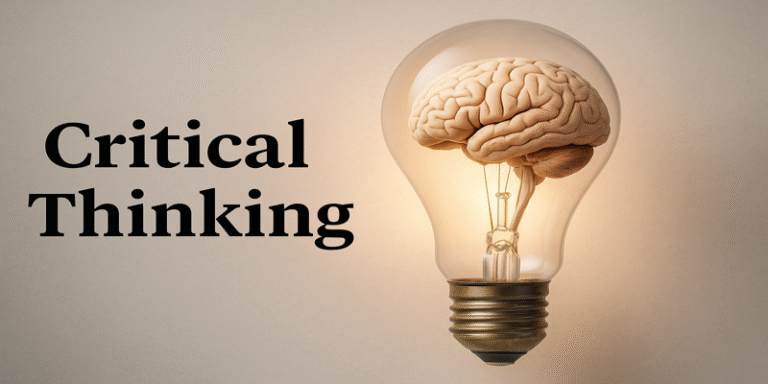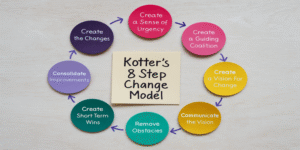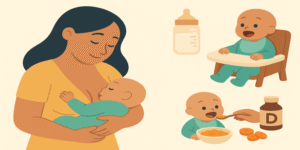In an increasingly complex and information-rich world, critical thinking has emerged as one of the most vital skills for success in academia, professional environments, and everyday decision-making. It is the foundation of effective reasoning, sound judgment, and problem-solving, equipping individuals to make informed, evidence-based decisions rather than reacting impulsively or accepting information at face value.
According to Paul and Elder (2001), critical thinking is “the art of analysing and evaluating thinking with a view to improving it.” This definition highlights that critical thinking is both a process and a discipline. It demands self-awareness, intellectual curiosity, and the willingness to question assumptions. The development of this skill is essential for learners, leaders, and citizens seeking to navigate the complexities of modern life.
1.0 The Nature and Importance of Critical Thinking
At its core, critical thinking involves analysing, evaluating, and interpreting information and arguments systematically. It requires one to question assumptions, explore multiple perspectives, and make reasoned judgements based on credible evidence and logical principles (Ennis, 1996).
In academia, critical thinking distinguishes surface learning—where students memorise facts—from deep learning, where they engage with concepts, analyse implications, and form their own interpretations (Fisher, 2011). In professional contexts, it enables individuals to evaluate risks, interpret data, and make strategic decisions under uncertainty (Facione, 2011). On a personal level, critical thinking fosters self-reflection, ethical reasoning, and the ability to resist misinformation and manipulation in media-saturated societies.
The World Economic Forum (2023) listed critical thinking among the top five skills required for employability in the 21st century, emphasising its value across disciplines and industries.
2.0 Key Components of Critical Thinking
2.1 Analysis
The first step in critical thinking is analysis—the process of breaking down complex ideas, arguments, or information into their constituent parts for deeper understanding. According to Fisher (2011), analytical thinkers examine relationships between evidence, reasons, and conclusions to uncover the logic of arguments.
For example, in academic writing, analysing a research article involves evaluating its methodology, assumptions, and findings, rather than merely summarising its content. In professional settings, analysis might mean dissecting a business proposal to assess its feasibility and financial implications.
2.2 Evaluation
Once information is analysed, it must be evaluated for credibility and validity. Ennis (1996) notes that evaluation involves assessing whether claims are supported by sound evidence and logical reasoning. Critical thinkers scrutinise sources, data reliability, argument strength, and potential bias.
For instance, evaluating a news article requires distinguishing between factual reporting and opinion, recognising confirmation bias, and assessing whether cited evidence comes from credible institutions or peer-reviewed research.
2.3 Interpretation
Interpretation involves understanding information within its proper context and identifying underlying assumptions and implications. Browne and Keeley (2014) emphasise that critical thinkers interpret ideas not in isolation but in relation to the cultural, historical, or theoretical frameworks in which they arise.
For example, interpreting a statistical claim about public health requires understanding the social conditions and research limitations surrounding the data. In personal decision-making, it means viewing problems from multiple angles before forming conclusions.
2.4 Inference
The ability to draw logical inferences—connecting evidence to form reasonable conclusions—is central to critical thinking. Halpern (1998) defines inference as using reasoning to bridge gaps in information and predict outcomes.
In scientific research, inference allows scholars to form hypotheses based on observed patterns. In everyday life, individuals infer motives, consequences, or potential risks before taking action. However, critical thinkers remain aware of the difference between correlation and causation, avoiding false assumptions.
2.5 Explanation
A hallmark of strong critical thinking is the ability to explain one’s reasoning clearly and coherently. According to Paul (1993), critical thinkers not only arrive at conclusions but can also justify them with evidence and sound logic.
In academic writing, explanation involves articulating arguments transparently and supporting them with references. In workplaces, professionals must explain complex ideas—such as strategic plans or technical data—to colleagues or clients, ensuring shared understanding.
2.6 Self-Regulation
Perhaps the most challenging component of critical thinking is self-regulation, which involves monitoring one’s own thought processes and recognising biases, assumptions, and limitations. McPeck (1981) asserts that critical thinking is not merely cognitive but also metacognitive—it requires reflection on how we think.
For example, a manager must be aware of personal biases when evaluating employee performance. Students, too, must acknowledge when preconceived beliefs affect their interpretation of evidence. Through self-reflection and open-mindedness, individuals can cultivate intellectual humility and fairness.
2.7 Problem-Solving
Problem-solving is a direct application of critical thinking. According to Facione (2011), it involves identifying and defining problems, analysing their causes, exploring solutions, and selecting the most appropriate course of action. Critical thinkers approach problems systematically and creatively, ensuring that decisions are grounded in reason rather than emotion or habit.
For example, in healthcare, critical thinking allows professionals to diagnose complex conditions by analysing symptoms and weighing treatment options. In business, it helps leaders balance short-term needs with long-term sustainability.
2.8 Creativity
While often seen as opposites, creativity and critical thinking are deeply interconnected. Sternberg (1986) explains that creativity enhances critical thinking by enabling individuals to explore innovative perspectives and challenge conventional assumptions. Similarly, critical thinking ensures that creative ideas are evaluated for feasibility and coherence.
For instance, an architect designing a sustainable building must think creatively about design possibilities while critically assessing materials, safety standards, and costs. Thus, effective thinkers blend innovation with logical discipline.
3.0 The Role of Critical Thinking in Professional and Personal Contexts
3.1 In Professional Environments
In the workplace, employers value critical thinking as a key soft skill that supports leadership, teamwork, and innovation. Professionals who can analyse data, identify risks, and make sound judgments contribute to better organisational outcomes.
A 2022 survey by the Chartered Institute of Personnel and Development (CIPD) found that employers ranked critical thinking and problem-solving among the top skills for career advancement. In fields such as law, healthcare, and engineering, critical thinking ensures compliance with ethical standards and prevents costly mistakes.
3.2 In Personal Life
On a personal level, critical thinking fosters emotional intelligence, ethical reasoning, and resilience. It enables individuals to make rational choices about finances, relationships, and health, based on logic rather than impulse or misinformation.
In the digital age, where social media often amplifies false information, critical thinking empowers citizens to evaluate sources critically and resist manipulation. As Facione (2011) notes, critical thinkers are not sceptics by default but seekers of truth, guided by curiosity and integrity.
3.3 In Academic Settings
Critical thinking underpins all academic disciplines. Students are expected not just to recall facts but to evaluate arguments, synthesise sources, and construct original viewpoints (Fisher, 2011). In higher education, essays, research projects, and debates all demand critical engagement with evidence and ideas.
For example, a history student must assess primary sources for bias, while a science student evaluates experimental data for validity. As universities increasingly emphasise lifelong learning, critical thinking becomes essential for adapting to evolving knowledge.
In conclusion, critical thinking is a multifaceted skill that underpins success across academic, professional, and personal domains. It requires mastery of analysis, evaluation, interpretation, inference, explanation, self-regulation, problem-solving, and creativity. More than a cognitive process, it is a habit of mind—a commitment to rational inquiry, intellectual humility, and lifelong learning.
By developing and practising critical thinking, individuals become independent learners, ethical professionals, and engaged citizens capable of navigating the complexities of modern society. As Paul and Elder (2001) assert, to think critically is to think consciously and deliberately—to reason with clarity, precision, and purpose in pursuit of truth and understanding.
References
Browne, M. N. & Keeley, S. M. (2014) Asking the Right Questions: A Guide to Critical Thinking. Pearson.
Ennis, R. H. (1996) ‘Critical Thinking Dispositions: Their Nature and Assessability,’ Informal Logic, 18(2–3), pp. 165–182.
Facione, P. A. (2011) Critical Thinking: What It Is and Why It Counts. California Academic Press.
Fisher, A. (2011) Critical Thinking: An Introduction. Cambridge University Press.
Halpern, D. F. (1998) ‘Teaching Critical Thinking for Transfer Across Domains: Dispositions, Skills, Structure Training, and Metacognitive Monitoring,’ American Psychologist, 53(4), pp. 449–455.
McPeck, J. E. (1981) Critical Thinking and Education. St. Martin’s Press.
Paul, R. (1993) ‘Critical Thinking: What, Why, and How,’ New Directions for Community Colleges, 1993(84), pp. 3–24.
Paul, R. & Elder, L. (2001) Critical Thinking: Concepts and Tools. Foundation for Critical Thinking.
Sternberg, R. J. (1986) Critical Thinking: Its Nature, Measurement, and Improvement. National Institute of Education, U.S. Department of Education.
World Economic Forum (2023) The Future of Jobs Report 2023. Geneva: WEF.









